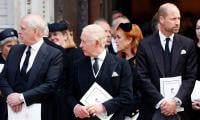A long awaited change
The moment many believe Prime Minister Nawaz Sharif was waiting for has finally arrived with the cha
By Ayaz Wazir
December 02, 2013
The moment many believe Prime Minister Nawaz Sharif was waiting for has finally arrived with the change of command in top army echelons. He appointed a new chief of army staff, a new chairman of the joint chiefs of staff committee and also nominated the successor of the soon-retiring chief justice of Pakistan.
These are the three major changes the prime minister has made in governmental hierarchy, after the changeover of the chief executive of the country. That leaves no hurdle in his way for implementation of a positive change in the policy focussed on eradicating the militancy that has wreaked havoc on the nation.
Although we have to wait some time to gauge correctly the policies the new army chief will follow, the contributions that he made through addition/alteration of some chapters in the military green book indicate that a paradigm shift from the India-centric focus of our defence forces to that of terrorism and extremism within the country being enemy number one could well be on the cards. Let us keep our fingers crossed and hope that the new chief goes along with this shift as the country has suffered no end from terrorism.
The nation has long been in a state of limbo in the absence of any well-defined policy or clear-cut rules for dealing with this problem. Instead it has witnessed unbelievable scenes, particularly in the conflict zones in the federally administered tribal areas and Khyber Pakhtunkhwa – further confusing the public as to who is or is not the enemy.
At the time the government was headed by a dictator who was unfortunately also the army chief. He used the well-respected institution for self-aggrandisement. His misguided policies inflicted unbelievable losses on the nation. Regrettably these continued unabated during his successor’s government since it had come to power through the infamous National Reconciliation Ordinance (NRO) deal.
Before the May elections, Nawaz Sharif was very vocal about bringing changes in the country’s internal and external policies if elected to power. And the nation responded to his call in the May 11elections and brought him to power. The people elected him with a heavy majority so that his party could form a government on its own, without the aid of any other party, and implement any policy he wanted, unfettered by the wishes of any coalition partners.
The people have waited patiently, along with him, for six months for the change to begin. Now that the path has been smoothed for the implementation of policies that he wants to introduce it would only be appropriate if he unveils the contours of that policy of change with regard to the situation at home as well as abroad, particularly in our relations with India and Afghanistan.
The Afghan situation is becoming more and more complicated with each passing day. President Karzai is unwilling to sign the widely talked about bilateral security agreement with the US whereas the US wants it to be signed in a matter of days, before the end of the year. The US is getting impatient with Karzai’s delaying tactics and is threatening a ‘zero option’ if the agreement is not signed as desired by Washington.
Whether the agreement is signed or not the situation will become more dicey, even with the likelihood of another civil war after the pullout of US forces. This will have serious repercussions for Pakistan. To cater to that the prime minister has to set the course of our policy right. Just visits to Afghanistan will not bring about positive results. We have to discard once and for all our outmoded notion of having ‘strategic depth’ in Afghanistan, a policy that has backfired badly and caused us immense problems apart from creating hatred for Pakistan in the minds of many Afghans.
Prime Minister Nawaz also has to bear in mind the fast changing developments that are taking place in the region. The US has moved from its decades-old position of animosity towards Iran and is moving fast on the newly found track of accommodation with that country, even at the cost of causing apprehension among its old allies like Israel, the Saudis and others in the Middle East. Who knows what other adjustments we will have to make in our foreign policy because of the shifting sands.
While on the one hand the change may help us complete the long awaited gas pipeline project with Iran, on the other it will reduce the importance of depending on Pakistan for transportation of goods from Afghanistan because of easier access to the Iranian port of Chabahar. The US can now avail of the Iranian port facilities for this purpose in case Pakistan makes the present route too problematic.
We should also not forget that President Obama has proclaimed loud and clear that his forces will target Al-Qaeda members wherever they are found. And I believe this message was repeated in different words during our prime minister’s meeting with him in Washington when the question of drone attacks was raised. Most probably it was emphasised that the root cause for which drones operate over Pakistani territory should be removed by Pakistani forces themselves, otherwise drones would continue addressing the problem.
The new army chief – whose hands are clean, having nothing to do with the deals made by his predecessors – is in a better position to reconsider the GHQ's policy towards Fata since it cannot be kept separate from the policy towards Afghanistan. The two are closely linked in every respect. The people there have been treated very poorly despite the fact that they have rendered tremendous sacrifices for the country. Instead of appreciating that and doing something for the development of that area they are looked down upon and treated as potential enemies.
This attitude has to change and that change can be brought by no one other than the army chief himself. He needs to introduce a culture of friendship with the people there – by directing his troops to facilitate their lives instead of making them more difficult as has been the case for the last ten years. He must put an end to the step-motherly treatment meted to the people there.
Nobody there supports militancy. On the contrary they are sick and tired of the situation in their region, which has made life hell for them. They want to live in peace like others elsewhere in the country. What is happening there is not of their making. They had no contribution in it. They have been forced to become silent spectators even to the killing of their near and dear ones as those holding the killing machines have the solid support of hidden hands. And it is not possible for them (tribesmen) to match that.
They need all help and assistance that the armed forces, which are calling the shots in the area, can extend to ensure their protection. The people of Fata are waiting for a positive signal from the government. Once they get the signal they will come in the open in support of the army for any positive changes in that area.
The writer is a former ambassador. Email: waziruk@hotmail.com
These are the three major changes the prime minister has made in governmental hierarchy, after the changeover of the chief executive of the country. That leaves no hurdle in his way for implementation of a positive change in the policy focussed on eradicating the militancy that has wreaked havoc on the nation.
Although we have to wait some time to gauge correctly the policies the new army chief will follow, the contributions that he made through addition/alteration of some chapters in the military green book indicate that a paradigm shift from the India-centric focus of our defence forces to that of terrorism and extremism within the country being enemy number one could well be on the cards. Let us keep our fingers crossed and hope that the new chief goes along with this shift as the country has suffered no end from terrorism.
The nation has long been in a state of limbo in the absence of any well-defined policy or clear-cut rules for dealing with this problem. Instead it has witnessed unbelievable scenes, particularly in the conflict zones in the federally administered tribal areas and Khyber Pakhtunkhwa – further confusing the public as to who is or is not the enemy.
At the time the government was headed by a dictator who was unfortunately also the army chief. He used the well-respected institution for self-aggrandisement. His misguided policies inflicted unbelievable losses on the nation. Regrettably these continued unabated during his successor’s government since it had come to power through the infamous National Reconciliation Ordinance (NRO) deal.
Before the May elections, Nawaz Sharif was very vocal about bringing changes in the country’s internal and external policies if elected to power. And the nation responded to his call in the May 11elections and brought him to power. The people elected him with a heavy majority so that his party could form a government on its own, without the aid of any other party, and implement any policy he wanted, unfettered by the wishes of any coalition partners.
The people have waited patiently, along with him, for six months for the change to begin. Now that the path has been smoothed for the implementation of policies that he wants to introduce it would only be appropriate if he unveils the contours of that policy of change with regard to the situation at home as well as abroad, particularly in our relations with India and Afghanistan.
The Afghan situation is becoming more and more complicated with each passing day. President Karzai is unwilling to sign the widely talked about bilateral security agreement with the US whereas the US wants it to be signed in a matter of days, before the end of the year. The US is getting impatient with Karzai’s delaying tactics and is threatening a ‘zero option’ if the agreement is not signed as desired by Washington.
Whether the agreement is signed or not the situation will become more dicey, even with the likelihood of another civil war after the pullout of US forces. This will have serious repercussions for Pakistan. To cater to that the prime minister has to set the course of our policy right. Just visits to Afghanistan will not bring about positive results. We have to discard once and for all our outmoded notion of having ‘strategic depth’ in Afghanistan, a policy that has backfired badly and caused us immense problems apart from creating hatred for Pakistan in the minds of many Afghans.
Prime Minister Nawaz also has to bear in mind the fast changing developments that are taking place in the region. The US has moved from its decades-old position of animosity towards Iran and is moving fast on the newly found track of accommodation with that country, even at the cost of causing apprehension among its old allies like Israel, the Saudis and others in the Middle East. Who knows what other adjustments we will have to make in our foreign policy because of the shifting sands.
While on the one hand the change may help us complete the long awaited gas pipeline project with Iran, on the other it will reduce the importance of depending on Pakistan for transportation of goods from Afghanistan because of easier access to the Iranian port of Chabahar. The US can now avail of the Iranian port facilities for this purpose in case Pakistan makes the present route too problematic.
We should also not forget that President Obama has proclaimed loud and clear that his forces will target Al-Qaeda members wherever they are found. And I believe this message was repeated in different words during our prime minister’s meeting with him in Washington when the question of drone attacks was raised. Most probably it was emphasised that the root cause for which drones operate over Pakistani territory should be removed by Pakistani forces themselves, otherwise drones would continue addressing the problem.
The new army chief – whose hands are clean, having nothing to do with the deals made by his predecessors – is in a better position to reconsider the GHQ's policy towards Fata since it cannot be kept separate from the policy towards Afghanistan. The two are closely linked in every respect. The people there have been treated very poorly despite the fact that they have rendered tremendous sacrifices for the country. Instead of appreciating that and doing something for the development of that area they are looked down upon and treated as potential enemies.
This attitude has to change and that change can be brought by no one other than the army chief himself. He needs to introduce a culture of friendship with the people there – by directing his troops to facilitate their lives instead of making them more difficult as has been the case for the last ten years. He must put an end to the step-motherly treatment meted to the people there.
Nobody there supports militancy. On the contrary they are sick and tired of the situation in their region, which has made life hell for them. They want to live in peace like others elsewhere in the country. What is happening there is not of their making. They had no contribution in it. They have been forced to become silent spectators even to the killing of their near and dear ones as those holding the killing machines have the solid support of hidden hands. And it is not possible for them (tribesmen) to match that.
They need all help and assistance that the armed forces, which are calling the shots in the area, can extend to ensure their protection. The people of Fata are waiting for a positive signal from the government. Once they get the signal they will come in the open in support of the army for any positive changes in that area.
The writer is a former ambassador. Email: waziruk@hotmail.com
-
 Gigi Hadid Talks About 'relieving Tension' Amid Having Hashimoto's Disease
Gigi Hadid Talks About 'relieving Tension' Amid Having Hashimoto's Disease -
 Sarah Ferguson Is 'persona Non Grata', Prince William Makes It Clear To Everyone
Sarah Ferguson Is 'persona Non Grata', Prince William Makes It Clear To Everyone -
 Northern Lights Alert On Valentine’s Day: How, Where & Best Time To Watch Auroras
Northern Lights Alert On Valentine’s Day: How, Where & Best Time To Watch Auroras -
 Dennis Quaid Reveals What Keeps His Marriage To Laura Savoie Healthy
Dennis Quaid Reveals What Keeps His Marriage To Laura Savoie Healthy -
 Mustafa Suleyman Says Microsoft Is Building Its Own AI Superintelligence
Mustafa Suleyman Says Microsoft Is Building Its Own AI Superintelligence -
 Jessica Alba, Cash Warren Finalize Divorce After 16 Years Of Marriage
Jessica Alba, Cash Warren Finalize Divorce After 16 Years Of Marriage -
 China’s AI Boom Takes Center Stage At Spring Festival One Year After DeepSeek Stirred The Industry
China’s AI Boom Takes Center Stage At Spring Festival One Year After DeepSeek Stirred The Industry -
 James Van Der Beek Called His Sixth Child Jeremiah 'healing For Us' Before His Death
James Van Der Beek Called His Sixth Child Jeremiah 'healing For Us' Before His Death -
 Elon Musk Vs Reid Hoffman: Epstein Files Fuel Public Spat Between Tech Billionaires
Elon Musk Vs Reid Hoffman: Epstein Files Fuel Public Spat Between Tech Billionaires -
 Gordon Ramsay Denies Victoria Beckham Got Handsy With Brooklyn At His Wedding
Gordon Ramsay Denies Victoria Beckham Got Handsy With Brooklyn At His Wedding -
 Gordon Ramsay Makes Unexpected Plea To Brooklyn As He Addresses Beckham Family Feud
Gordon Ramsay Makes Unexpected Plea To Brooklyn As He Addresses Beckham Family Feud -
 Prince Harry Warns Meghan Markle To 'step Back'
Prince Harry Warns Meghan Markle To 'step Back' -
 Selena Gomez Explains Why She Thought Lupus Was 'life-or-death'
Selena Gomez Explains Why She Thought Lupus Was 'life-or-death' -
 New Zealand Flood Crisis: State Of Emergency Declared As North Island Braces For More Storms
New Zealand Flood Crisis: State Of Emergency Declared As North Island Braces For More Storms -
 Nancy Guthrie Case: Mystery Deepens As Unknown DNA Found At Property
Nancy Guthrie Case: Mystery Deepens As Unknown DNA Found At Property -
 James Van Der Beek's Brother Breaks Silence On Actor's Tragic Death
James Van Der Beek's Brother Breaks Silence On Actor's Tragic Death



